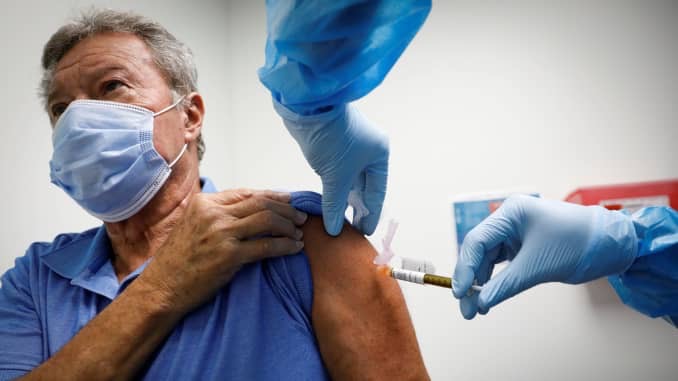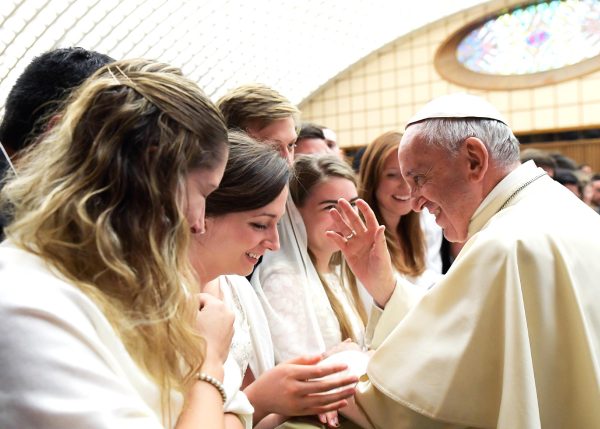Vaccines Should Be Legally Required
The COVID-19 vaccine race is currently at the stage where over thirty countries have approved the use of a vaccine, with one of them being the United States. The big question now is: should getting the vaccine be legally required?
This is not actually the biggest question at hand, as vaccines are already required in some situations according to the Tenth Amendment in the Constitution. For example, everyone who wants to attend a public school must have received the polio and measles vaccine.
Naturally, there are loopholes in every system. In the year 2000, measles was declared eliminated from the U.S., as there had been no cases reported for an entire year. In 2019, however, there was a massive global outbreak of measles, and the U.S. reported cases in 31 states. The disease arrived from abroad and was transmitted to those who had refused to vaccinate. Now, a similar situation is showing up again, albeit on an extraordinarily larger scale. In order to prevent history from repeating itself, everyone without a legitimate medical condition, such as an allergic reaction to any of the ingredients in the vaccine, should be required to get vaccinated for COVID-19.
Since the U.S. has currently approved two coronavirus vaccines, getting vaccinated is now possible and will be extremely helpful, especially as we encounter the “third wave” of COVID-19, with deaths reaching new milestones each week. Successful mass vaccination could quickly end the pandemic. Many, however, have stated a myriad of reasons for refusing vaccination: religion, suspicion against the government and the belief that they are already safe, among others.
Some have an ethical dilemma surrounding vaccinations: certain vaccines are grown in cell tissues from two voluntarily aborted fetuses from the early 1960s. This does not apply to the COVID-19 vaccine, however, as it is made with mRNA and not cell tissue.
A few reference historical cases such as the case of Henrietta Lacks, whose cancer cells were taken without consent for research, are one reason for their distrust of the government and scientists. Others say that the coronavirus vaccine could even be a conspiracy. Some just believe that they are safe from the coronavirus because they have not been infected and do not want to experience the side effects of the vaccine. Yet, are these reasons enough to justify putting the rest of the world at risk?
Certainly not.
2019 has proved that just a majority of people receiving a vaccine is not enough to successfully eliminate a disease — it will only curb its spread. The World Health Organization listed vaccine hesitancy as one of the top 10 threats to global health in 2019. Since the first vaccines were invented in the late eighteenth century, they have become one of humanity’s greatest tools for eradicating diseases. They eliminated smallpox and rinderpest worldwide and can do the same for the coronavirus. Arguments against vaccination are uninformed and irresponsible.
Although rigorous studies and research would say otherwise, some fear the side effects of the vaccine as it is new and there is little information about its possible side effects. The unknown is certainly scary, but most of the global population has taken the measles vaccine without dying from it (instead saving an estimated over twenty million lives). So why are we being selective about the COVID-19 vaccine?
The death rate from COVID-19 may not be as high as other well-known diseases such as the Zaïre Ebola virus, but there are still many things to worry about besides death. Survivors of COVID-19 are at risk of long-term health issues in their lungs, heart and brain. Lockdown has caused economic recessions globally, including the worst recession in the U.S. since the Great Depression. Not to mention the pain of being isolated, alone while sick or wanting to see an elderly family member after months in quarantine. If everyone gets the vaccine, we can minimize the suffering and struggles that have defined 2020 as a result of the virus and lockdown.
Xiangan He (I) says, “I will definitely take the vaccine if it’s available to me, if not based on a concern for self-security, at least the scientific principles regarding herd immunity.” Herd immunity is when the majority of a community is immune to a disease, thus making it less likely to be transmitted from one person to another.
It is not enough for just some to be willing to take the vaccine. In the midst of a global pandemic, everyone counts. The vaccine can be legally required through the vaccine mandates. United Airlines CEO Scott Kirby has already brought up the desire to make getting a coronavirus vaccine mandatory for all employees, and it is likely that many other firms such as the food industry will follow suit. Nobody wants to get a package of meat contaminated by COVID-19.







